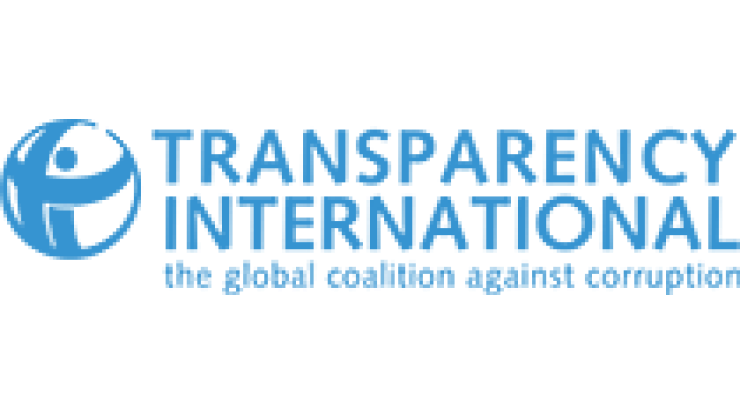Power to People
- Fri, 7 April 2023

အပြည်ပြည်ဆိုင်ရာ ပွင့်လင်းမြင်သာမှုအဖွဲ့ (TransparencyInternational-TI) သည် နိုင်ငံပေါင်း ၁၈၀ ၏ နှစ်အလိုက် အဂတိလိုက်စားမှု အညွှန်းကိန်း (CPI) များကို ထုတ်ပြန်ပေးသော အဖွဲ့ အစည်းတစ်ခုဖြစ်ပြီး ယခုပေးပို့လာသောသတင်းလွှာတွင် အောက်ဖော်ပြပါ အချက်များ အဓိက ပါဝင်ပါသည်-
(က) တောင်အာဖရိကအစိုးရသည် လွန်ခဲ့သောနှစ်လက နိုင်ငံ၏ စွမ်းအင်အကျပ် အတည်းကြောင့် “ဘေးအန္တရာယ် အခြေအနေကို” ကိုင်တွယ်ဖြေရှင်းရန် အစီအမံများချမှတ်ခဲ့ပါကြောင်း၊ အဆိုပါအစီအမံများကြောင့် အရပ်ဘက် အဖွဲ့အစည်းများက နိုင်ငံတော်၏ လုပ်ပိုင်ခွင့်ကို တလွဲအသုံးပြုကာ Eskom ကုမ္ပဏီအပေါ် တင်းကြပ်မှုဖြေလျော့ပေးခဲ့သည့် စည်းမျဉ်းများကြောင့် အဂတိ လိုက်စားမှုများ ဖြစ်ပေါ်စေနိုင်သည်ဟု မှတ်ချက်ပြုခဲ့ပါကြောင်း၊
(ခ) ပြည်သူလူထု၏ ဆန္ဒပြမှုများအပြီးတွင် အစိုးရသည် Eskom ကုမ္ပဏီအား ၎င်းတို့၏ နှစ်စဉ်ဘဏ္ဍာရေးရှင်းတမ်းများတွင် ပုံမှန်မဟုတ်သော အသုံးစရိတ် များ နှင့်စပ်လျဉ်း၍ ရှင်းလင်းဖော်ပြရန် အမိန့်ထုတ်ပြန်ခဲ့ပါကြောင်း၊
(ဂ) ကုမ္ပဏီသည် အကျင့်ပျက်ခြစားမှု အရှုပ်တော်ပုံများတွင် ပါဝင်နေသကဲ့သို့ CEO ဖြစ်သူ၏ ကျောက်မီးသွေး ဓာတ်အားပေးစက်ရုံတွင် အဆင့်မြင့်အရာရှိ များ စွန့်ပစ်ပစ္စည်း ထုတ်လွှင့်မှုများတွင်လည်း ပါဝင်ပတ်သက်ခဲ့ကြပြီး ဓာတ်အား ထုတ်လွှင့်မှုနှင့် စွန့်ပစ်မှုများကြောင့် တစ်လလျှင် အမေရိကန်ဒေါ်လာ ၅၅ သန်း ဆုံးရှုံးခဲ့ရကြောင်း ဖော်ပြခဲ့ပါကြောင်း၊
(ဃ) ထို့အပြင် လျှပ်စစ်မီးပြတ်တောက်ခြင်း သို့မဟုတ် “ပြင်ဆင်ခြင်း” များ လုပ်ဆောင်ရန်အတွက် တစ်နေ့လျှင်အနည်းဆုံး ၁၂း၀၀ နာရီခန့် လျှပ်စစ်မီးပြတ် တောက်မှုများ ရှိခဲ့ပါကြောင်း၊
(င) ပြန်လည်ပြည့်ဖြိုးမြဲစွမ်းအင်သို့ ကူးပြောင်းခြင်းအား တောင်အာဖရိက၏ မြို့ပြ ဖွံ့ဖြိုးရေးကို စွမ်းအားဖြည့်ပေးပြီး လူနေမှု ဘဝအရည်အသွေးကို ပံ့ပိုးပေးနိုင် သည့် အဖြေတစ်ခုအဖြစ် ကျယ်ကျယ်ပြန့်ပြန့် ရှုမြင်ကြပြီး နိုင်ငံတော်မှ ပေးအပ်သော ဝန်ဆောင်မှုများတွင် အကျင့်ပျက်ခြစားမှုများနှင့် ကြုံလာပါက ယင်းကဲ့သို့ ဖြစ်လာနိုင်မည် မဟုတ်ပါကြောင်း၊
(စ) ကမ္ဘာ့လူဦးရေ တိုးတက်မှု ခန့်မှန်းချက်တွင် အာဖရိက၏ လူဦးရေတိုးပွားလာမှု ကို တွေ့မြင်ရမည် ဖြစ်ပါကြောင်း၊ ၂၀၅၀ ခုနှစ်တွင် အာဖရိက၌ လူဦးရေ ၉၅၀ သန်းခန့် ရှိလာနိုင်မည်ဟု ခန့်မှန်းထားပါကြောင်း၊
(ဆ) လူဦးရေတိုးပွားလာမှုနှင့်အတူ အများပြည်သူဆိုင်ရာ ဆုံးဖြတ်ချက်များ ချမှတ် ရာတွင် ကိုယ်ကျိုးစီးပွားဦးစားပေးမှုများ၊ အကျင့်ပျက်ခြစားမှုများ ပိုမိုဖြစ်ပေါ် လာနိုင်ပါကြောင်း၊ Bloemfontein မြို့ရှိ ဝင်ငွေနည်းပါးသော မိသားစုများ အတွက် သီးသန့်ရည်ရွယ်ထားသော နေအိမ်များကို အစိုးရတာဝန်ရှိသူများက ရယူထားပြီး ၎င်းတို့ အကျိုးစီးပွားအတွက် ငှားရမ်းမှုများ လုပ်ဆောင်နေကြ ပါကြောင်း၊
(ဇ) Laogos မြို့၊ Johannesburg မြို့ သို့မဟုတ် Nairobi မြို့ စသည့် မြို့ကြီး များတွင် အခြေခံဝန်ဆောင်မှုများပေးအပ်ရာတွင် အခြေခံလူတန်းစားများအား ချန်လှပ်ထားခံရပါကြောင်း၊ အကျင့်ပျက်ခြစားမှုများသည် အာဖရိကနိုင်ငံအတွက် ထူးခြားသော ကိစ္စရပ် မဟုတ်သော်လည်းခေတ်နှင့်အညီ မရှိသော စီမံကိန်း ဥပဒေများ၊ အရင်းအမြစ်နည်းပါးသော ဒေသန္တရအစိုးရများနှင့် ကျွမ်းကျင်မှုမရှိ သော မြို့ပြစီမံကိန်းရေးဆွဲသူများကြောင့် အခြားမြို့ကြီးတွင်လည်း အလားတူ ဖြစ်ရပ်များ ဖြစ်ပေါ်နိုင်ပါကြောင်း၊
(ဈ) အာဖရိက၏ မြို့ပြစီမံကိန်းရေးဆွဲသူများသည် မြို့ပြဖွံ့ဖြိုးတိုးတက်ရေး အတွက် အဓိကအခန်းကဏ္ဍမှ ပါဝင်နေသော်လည်း ၎င်းတို့သည် ပျံနှံ့နေသော အကျင့် ပျက်ခြစားမှုကို ကိုင်တွယ်ဖြေရှင်းရန် အဆင်သင့်မဖြစ်ဟု ခံစားနေရပါကြောင်း၊
(ည) အဆိုပါ အချက်များကို ကူညီဖြေရှင်းရန် TI အနေဖြင့် African Center for Cities နှင့် ပူးပေါင်းဆောင်ရွက်ခဲ့ပါကြောင်း၊ Saharan အောက်ပိုင်းမြို့များ တွင် အဂတိလိုက်စားမှု၏ အကျိုးသက်ရောက်မှုကို နားလည်ဖြေရှင်းရန် အတွက် ရည်ရွယ်ပြီး ဒေသအနှံ့မှ မြို့ပြဖွံ့ဖြိုးရေးဆိုင်ရာ ကျွမ်းကျင်သူများ နှင့် အကျယ် တဝင့်အလုပ်ရုံ ဆွေးနွေးပွဲ ပြုလုပ်ခဲ့ပါကြောင်း၊
(ဋ) အာဖရိက၏ မြို့ကြီးများတွင် မီးရရှိရန်နှင့် ပွင့်လင်းမြင်သာမှု၊ တာဝန်ခံမှု နှင့် သာတူညီမျှရှိသော မြို့ပြပတ်ဝန်းကျင်များကို ပံ့ပိုးပေးရန်အတွက် အစိုးရများ၊ အရပ်ဘက်အဖွဲ့အစည်းများနှင့် စီမံကိန်းရေးဆွဲသူများ၏ ပူးပေါင်းဆောင်ရွက်မှု များ လိုအပ်ပါကြောင်း ဖော်ပြပါရှိပါသည်။
Source==> Transparency International






